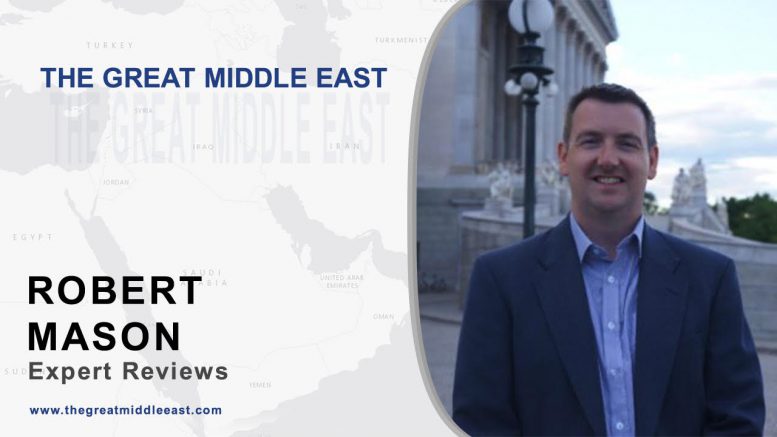For a long time, Egypt has positioned itself as a leader of the Arab world. And there were very real reasons. However, in recent years, there are views in the expert community and the media, that Egypt gives it leading position away to Saudi Arabia, some even claim that Egypt got into a state of dependence from Saudi Arabia. With a request to comment on this issue we turned to Associate Professor at American University in Cairo Robert Mason.
Do you think whether this is the real case? What is at the heart of the Egyptian-Saudi relations: equal partnership or, after all, one began to dominate over the other?
Despite the 2003 US intervention in Iraq, unrest associated with the Arab Spring, and falling oil prices, the fundamentals of Egyptian and Saudi influence have not really changed. Egypt still has a large (and fast growing) population, one of the largest military forces in Africa and the Middle East, geo-strategic significance (primarily through the Suez Canal), religious credibility of Al Azhar, and possibly growing energy flows (gas and electricity) and economic resources (foreign exchange revenues) through extractions from the large Zohr gas field. Saudi Arabia and other Gulf Cooperation Council (GCC) states, minus Qatar, have become central to Egyptian political economy. Whether that relationship will represent a continuation of ties or long term Egyptian economic dependence on the GCC states and erosion of its own power status depends largely on decision making in Cairo. There is now a recognition that falling oil prices have undermined Egypt’s preference for Gulf aid and loans over those from international financial institutions. An initial loan agreement of $12 billion has now been reached with the IMF (subject to Egypt finding another $6 billion in external financing), probably from the Gulf, World Bank and African Development Bank. IMF loans have been secured before, notably in 1977, but the reforms made them, such as reductions in subsidized foodstuffs, were politically unsustainable. The loan is to support foreign exchange reserves held by the Central Bank of Egypt, but it is unlikely to impact positively on youth unemployment, increase the number of low income housing units, or improve poverty levels overall. The US is the largest member of the IMF, and along with its multi-billion arms sales to Egypt, will make the US an increasingly vital Egyptian ally. US interests such as counterterrorism cooperation, intelligence sharing and Camp David compliance ensure a durable partnership, but it is not one which is transformative. Egyptian independence, political stability and soft power resources therefore hinge on the Egyptian government taking a broader and more sustainable approach to economic development by implementing a series of structural adjustment programs. High public spending during the onset of the Arab Spring and the oil price crash have already spurred Saudi Arabia to embark on important economic initiatives and reforms, including efficiency and diversification measures into renewable energy for example, collectively dubbed Saudi Vision 2030. The Kingdom has recently attracted a $3 billion investment from GE into a number of industries. Further investments in water, energy, aviation and digital projects could follow. The economic picture is therefore vastly different. Foreign policy is an area of convergence: Saudi military engagement in Yemen from 2015 has received Egyptian diplomatic support and both states work closely and develop similar positions on matters of interest. This is in contrast to the Egyptian – Saudi proxy war in Yemen in 1962-1967, largely due to the demise of pan-Arabism. Finally, given the preference of the Obama administration to begin engaging in the Middle East on a more multilateral basis, regional rivalries are unlikely to diminish. Whilst these can be managed between Sunni states with similar interests, it is important such partnerships are deployed to resolve broader and deeper contentions which mark the region out as being particularly conflict prone.
Twitter @Dr_Robert_Mason



Be the first to comment at "Robert Mason: Fundamentals of Egyptian and Saudi influence have not really changed"